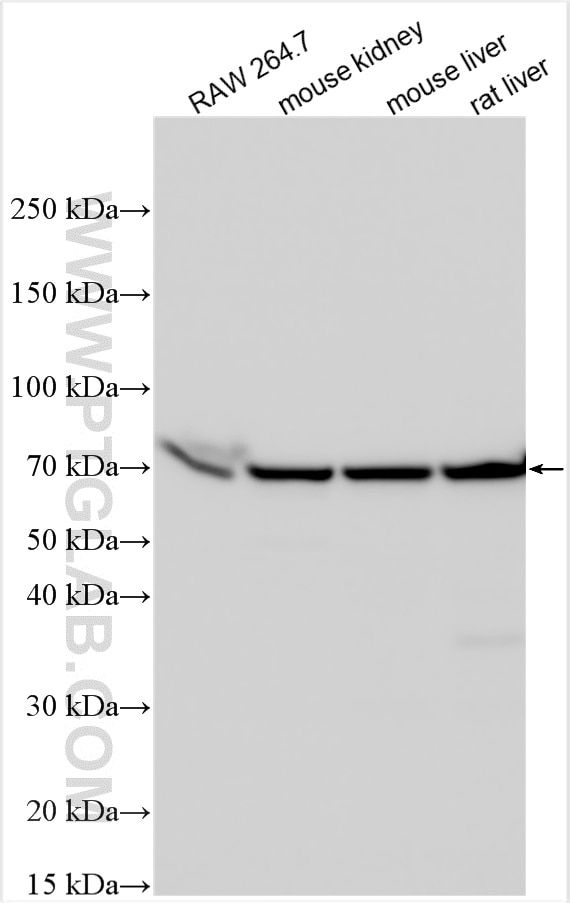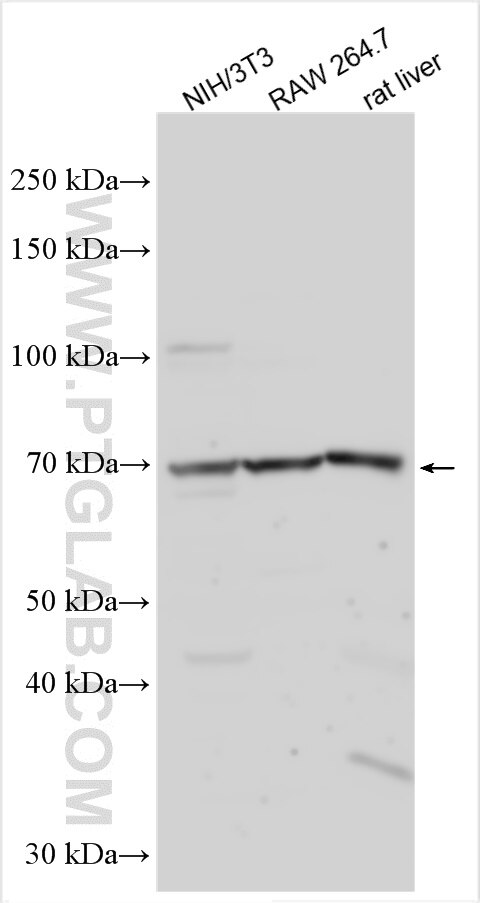Tested Applications
| Positive WB detected in | RAW 264.7 cells, mouse kidney tissue, mouse liver tissue, rat liver tissue, NIH/3T3 cells |
Recommended dilution
| Application | Dilution |
|---|---|
| Western Blot (WB) | WB : 1:500-1:2000 |
| It is recommended that this reagent should be titrated in each testing system to obtain optimal results. | |
| Sample-dependent, Check data in validation data gallery. | |
Product Information
31907-1-AP targets PABPC1L in WB, ELISA applications and shows reactivity with human, mouse, rat samples.
| Tested Reactivity | human, mouse, rat |
| Host / Isotype | Rabbit / IgG |
| Class | Polyclonal |
| Type | Antibody |
| Immunogen | PABPC1L fusion protein Ag36248 Predict reactive species |
| Full Name | poly(A) binding protein, cytoplasmic 1-like |
| Calculated Molecular Weight | 68 kDa |
| Observed Molecular Weight | 70 kDa |
| GenBank Accession Number | NM_001124756 |
| Gene Symbol | PABPC1L |
| Gene ID (NCBI) | 80336 |
| Conjugate | Unconjugated |
| Form | Liquid |
| Purification Method | Antigen affinity Purification |
| Storage Buffer | PBS with 0.02% sodium azide and 50% glycerol, pH 7.3. |
| Storage Conditions | Store at -20°C. Stable for one year after shipment. Aliquoting is unnecessary for -20oC storage. 20ul sizes contain 0.1% BSA. |
Background Information
PAP1L, also known as PABPC1L, is a human gene that has been associated with various cellular processes, particularly in the context of reproduction and embryonic development. PABPC1L was markedly upregulated in RCC, and high PABPC1L expression correlated with unfavorable prognosis and resistance to ICB (PMID: 38382068).
Protocols
| Product Specific Protocols | |
|---|---|
| WB protocol for PABPC1L antibody 31907-1-AP | Download protocol |
| Standard Protocols | |
|---|---|
| Click here to view our Standard Protocols |





